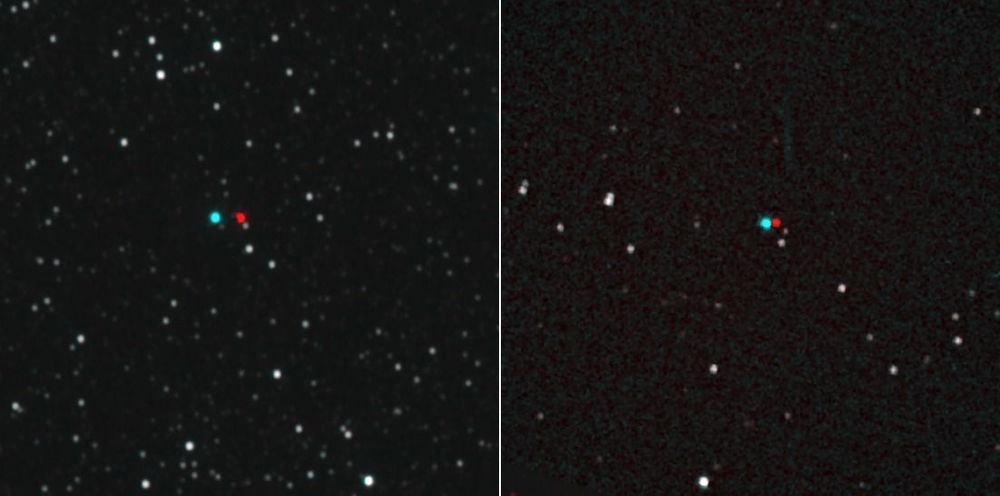In July of 2015, the New Horizons spacecraft made history when it became the first robotic explorer to conduct a flyby of Pluto. This was followed by another first, when the NASA mission conducted the first flyby of a Kuiper Belt Object (KBO) on December 31st, 2018 – which has since been named Arrokoth. Now, on the edge of the Solar System, New Horizons is still yielding some groundbreaking views of the cosmos.
For example, we here on Earth are used to thinking that the positions of the stars are “fixed”. In a sense, they are, since their positions and motions are relatively uniform when seen from our perspective. But a recent experiment conducted by the New Horizons team shows how familiar stars like Proxima Centauri and Wolf 359 (two of the closest stars in our neighbors) look different when viewed from the edge of the Solar System.
Located in the constellation Leo, Wolf 359 is an M-type (red dwarf) star that is roughly 7.9 light-years from Earth. It can be found close to the same path the Sun follows through the sky (the ecliptic), but can only be seen with a telescope. And if you’re a Trekkie, you might recognize the name since it was where that major battle with the Borg took place (don’t act like you don’t know!)










Comments are closed.